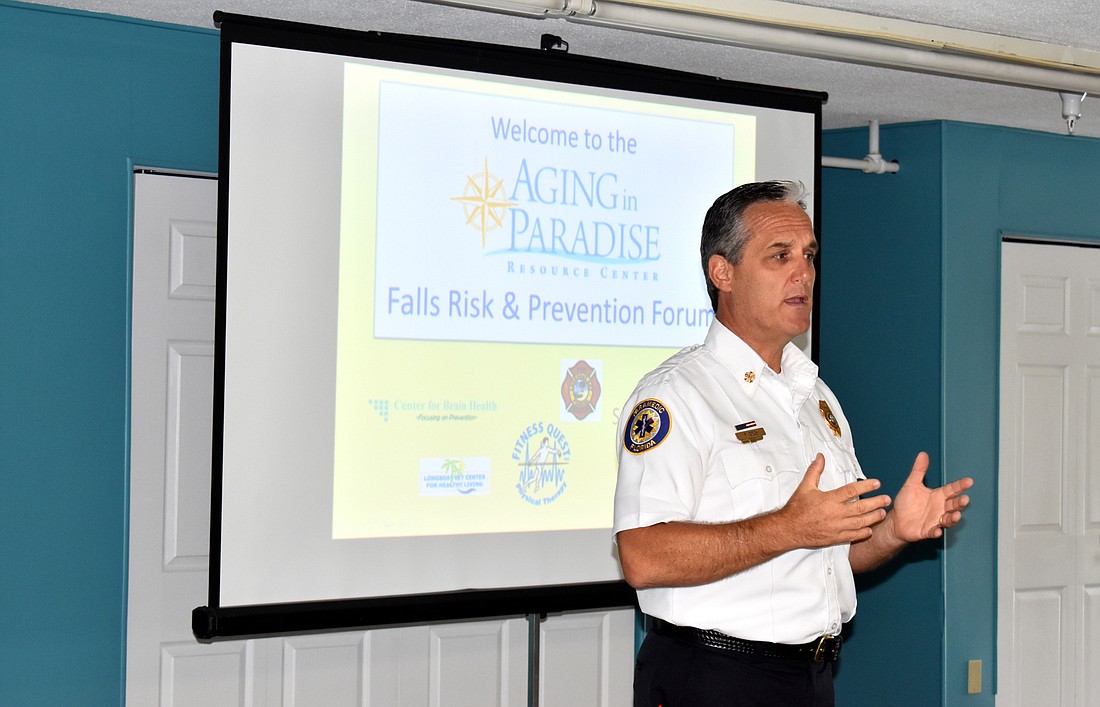- November 17, 2024
-
-
Loading

Loading

In 2016, Longboat Key Fire Rescue responded to 1,604 calls. Of those, about 600 calls were from people who then were taken to the hospital.
Of those calls, some came from Longboaters who had fallen and couldn’t get up — 250 to be exact.
In an effort to reduce the number of falls, and the calls for help that come with them, Aging in Paradise Resource Center hosted its first Falls Risk and Prevention Forum.
Twelve people attended the July 19 event that featured three speakers, including Longboat Key Fire Rescue Chief Paul Dezzi.
Falls, Dezzi said, make up a large portion of the department’s calls for assistance. And those calls come from homes, rarely from businesses, such as grocery stores.
To assist residents, the Fire Department offers to conduct a home fall-prevention survey. During the surveys, Dezzi and his team often find simple fixes that can prevent falls. Tips include:
But what’s most important, Dezzi said, is not to delay calling for help. Falls can result in injuries such as spine, hip, arm, leg, ankle, pelvis and hand fractures, or more serious injuries to the head. Death, also, is a possibility.
“On Longboat Key, when people fall, a lot wait to call,” he said.
Daiquiri Frieling a nurse practitioner at Sarasota’s Center for Brain Health, addressed balance and medications, saying balance is necessary to simply walk, get up from a chair and climb stairs.
Certain medications, and the amount of medications, can increase the risk of falling.
“We’re much more likely to fall if we’re on multiple medications,” she said.
Forty percent of older adults take five or more medications each day, and as people get older, their bodies metabolize medicine differently.
Some medicines that can increase the risk of falling are antidepressants, anti-anxiety medications, opioids, NSAIDS, heart and sleep medications, blood pressure medications, antihistamines and anticholinergics.
And, in addition to the medicines, their side effects can increase the risk of falling, too.
Common side effects include:
Sleeping pills increase the risk of falling as well. If someone takes a sleeping pill but doesn’t get eight hours of sleep, they could still be groggy in the morning.
“A lot of my patients fall in the driveway because they’re still groggy from taking sleeping pills the night before,” Frieling said.
Frieling said it’s worth it to talk to your doctor to make sure you still need all the medications you’re taking. If you do, see if the dose can be lowered. Take medications with meals and change the time of day when the drug is taken.
Andy Elton, a physical therapist at Fitness Quest Physical Therapy in Sarasota, walked the audience through some exercises that can help with balance.
“We’ve all fallen,” he said. “It just gets harder and harder.”